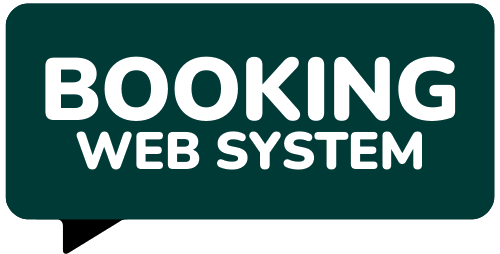Corporate Training for Business Success Unleashed
Corporate Training for Business Success isn’t just a routine task within organizations; it’s a powerful catalyst for growth, innovation, and success. In a rapidly changing business landscape, staying ahead requires more than just skilled employees; it demands a commitment to ongoing learning and development. In this article, we delve into the dynamics of corporate training, exploring its benefits, challenges, and best practices that can transform your workforce.
Importance of Corporate Training
In the competitive world of business, continuous improvement is the key to survival. Corporate Training for Business Success plays a pivotal role in ensuring that employees remain adaptable and adept in their roles. From updating skills to embracing new technologies, training keeps the workforce in sync with industry demands.
Evolving Trends in Corporate Training
The methods of corporate training are not static. With technological advancements and changes in work dynamics, the approach to training has evolved. We’ll explore the latest trends that are shaping the landscape of corporate learning.
Benefits of Corporate Training
Skill Enhancement
One of the primary objectives of corporate training is to enhance the skill set of employees. This section will discuss how targeted training programs contribute to skill development and how it positively impacts employee performance.
Employee Motivation
Beyond skill enhancement, corporate training acts as a motivator. Employees feel valued when organizations invest in their growth. We’ll explore how a motivated workforce translates to increased productivity and loyalty.
Increased Productivity
The ultimate goal of corporate training is to boost productivity. This section will elaborate on how a well-trained workforce can contribute to operational efficiency and business success.
Key Components of Successful Corporate Training
Customization
No two companies are alike, and their training programs shouldn’t be either. We’ll discuss the importance of tailoring training to meet the specific needs and objectives of a company.
Employee Involvement
Engaging employees in the training process is crucial. This section will highlight strategies to ensure active participation, leading to more effective learning outcomes.
Measurement of Success
How do you measure the success of a training program? We’ll explore metrics and evaluation methods that help organizations gauge the impact of their investment in training.
Latest Technologies in Corporate Training
E-Learning Platforms
The digital era has brought forth e-learning platforms that revolutionize training delivery. We’ll delve into the advantages and challenges of adopting online learning in corporate settings.
Virtual Reality (VR) Integration
Virtual reality is transforming Corporate Training for Business Success by providing immersive learning experiences. We’ll explore how VR is being used and its potential benefits.
Gamification
Making training fun and interactive through gamification is gaining popularity. We’ll discuss how incorporating game elements into training programs enhances engagement and knowledge retention.
Challenges in Corporate Training
Resistance to Change
Not everyone embraces change readily. This section will address common resistance factors and strategies to overcome them during training implementations.
Budget Constraints
Budget limitations can pose challenges to effective training. We’ll explore cost-effective strategies and alternatives that ensure quality learning within budget constraints.
Maintaining Consistency
Consistency is key to the success of any training program. We’ll discuss how organizations can maintain a consistent and standardized approach to training across departments.
Overcoming Challenges: Best Practices

Communication and Transparency
Clear communication is essential in overcoming resistance and challenges. This section will provide insights into effective communication strategies during the implementation of corporate training initiatives.
Leadership Support
The role of leadership in driving successful training programs is crucial. We’ll explore how leadership support fosters a culture of continuous learning and development.
Continuous Improvement
Training is an ongoing process. This section will highlight the importance of continuous improvement, adaptability, and staying abreast of industry changes in corporate training.
Case Studies: Successful Corporate Training Programs
Company A: Transformative Training Approach
We’ll delve into the success story of Company A, exploring how their unique training approach transformed their workforce and contributed to their business growth.
Company B: Embracing Technological Innovations
Company B’s journey showcases the impact of integrating cutting-edge technologies into their training programs. We’ll discuss the lessons learned and the outcomes achieved.
Company C: Focusing on Employee Development
Employee development is a central theme in the success of Company C. This section will outline how prioritizing employee growth led to a more skilled and motivated team.
Future of Corporate Training
Adaptive Learning
The future of Corporate Training for Business Success lies in adaptive learning. We’ll explore how personalized and adaptive learning experiences are shaping the training landscape.
Personalized Training Plans
Tailoring training plans to individual employee needs is gaining prominence. This section will discuss the benefits of personalized training and how it contributes to long-term skill retention.
AI-driven Training Modules
Artificial intelligence is revolutionizing training content delivery. We’ll discuss how AI-driven modules are enhancing the efficiency and effectiveness of corporate training.
Tips for Implementing Effective Corporate Training
Assessing Company Needs
Understanding the unique needs of your organization is the first step to effective training. We’ll provide a comprehensive guide to conducting a needs assessment.
Measuring ROI in Corporate Training
Quantifiable Metrics
Determining the return on investment (ROI) in training is crucial. We’ll explore quantifiable metrics that help organizations measure the success and impact of their training programs.
Employee Performance Indicators
Linking training outcomes to employee performance indicators provides valuable insights. This section will discuss how organizations can align training goals with performance metrics.
Long-term Impact on Business
Beyond immediate results, we’ll explore how corporate training programs can have a lasting impact on the overall success and sustainability of a business.
Corporate Training for Remote Teams

Challenges and Solutions
With the rise of remote work, training remote teams presents unique challenges. We’ll discuss common challenges and practical solutions for effective remote corporate training.
Importance of Virtual Collaboration
Facilitating virtual collaboration is essential in remote training scenarios. This section will highlight the significance of fostering collaboration among remote team members.
Cultural Considerations in Corporate Training
Diversity and Inclusion
Training programs should be inclusive and considerate of diversity. We’ll explore how organizations can create training content that promotes diversity and inclusion.
Global Training Strategies
For multinational companies, global training strategies are crucial. This section will outline considerations and best practices for implementing training programs across diverse cultures.
Regulatory Compliance in Corporate Training
Ensuring Legal Requirements
Compliance with legal standards is non-negotiable. We’ll discuss the importance of incorporating regulatory compliance into Corporate Training for Business Success programs.
Ethical Training Practices
Ethical considerations in training go beyond legality. This section will explore how organizations can ensure ethical training practices that align with their values.
Employee Testimonials: Real-life Impact of Corporate Training
Success Stories
Hearing from employees who have directly benefited from training is powerful. We’ll share success stories and testimonials that highlight the real-life impact of corporate training.
Personal Growth Experiences
Beyond professional development, corporate training often contributes to personal growth. This section will showcase how training programs can be transformative on a personal level.
Conclusion
In conclusion, Corporate Training for Business Success is a dynamic and indispensable aspect of modern business. From skill enhancement to embracing future technologies, investing in training yields benefits that extend beyond the individual to positively impact the entire organization.
FAQs: Unveiling Insights About Corporate Training
- Q: How often should companies update their corporate training programs?
- A: Regular updates are recommended, ideally at least once a year, to ensure content remains relevant and aligned with industry trends.
- Q: Are virtual reality and gamification suitable for all types of corporate training?
- A: While they can enhance engagement, suitability depends on the training objectives. Assessing the specific needs is crucial before implementation.
- Q: How can organizations measure the success of their corporate training programs?
- A: Quantifiable metrics such as improved performance, increased productivity, and employee satisfaction can gauge the success of training initiatives.
- Q: What role does leadership play in the success of corporate training?
- A: Leadership support is pivotal. When leaders actively endorse and participate in training, it fosters a culture of continuous learning.
- Q: How can organizations ensure diversity and inclusion in their training content?
- A: By incorporating diverse perspectives in training materials and creating content that respects and celebrates different backgrounds.

